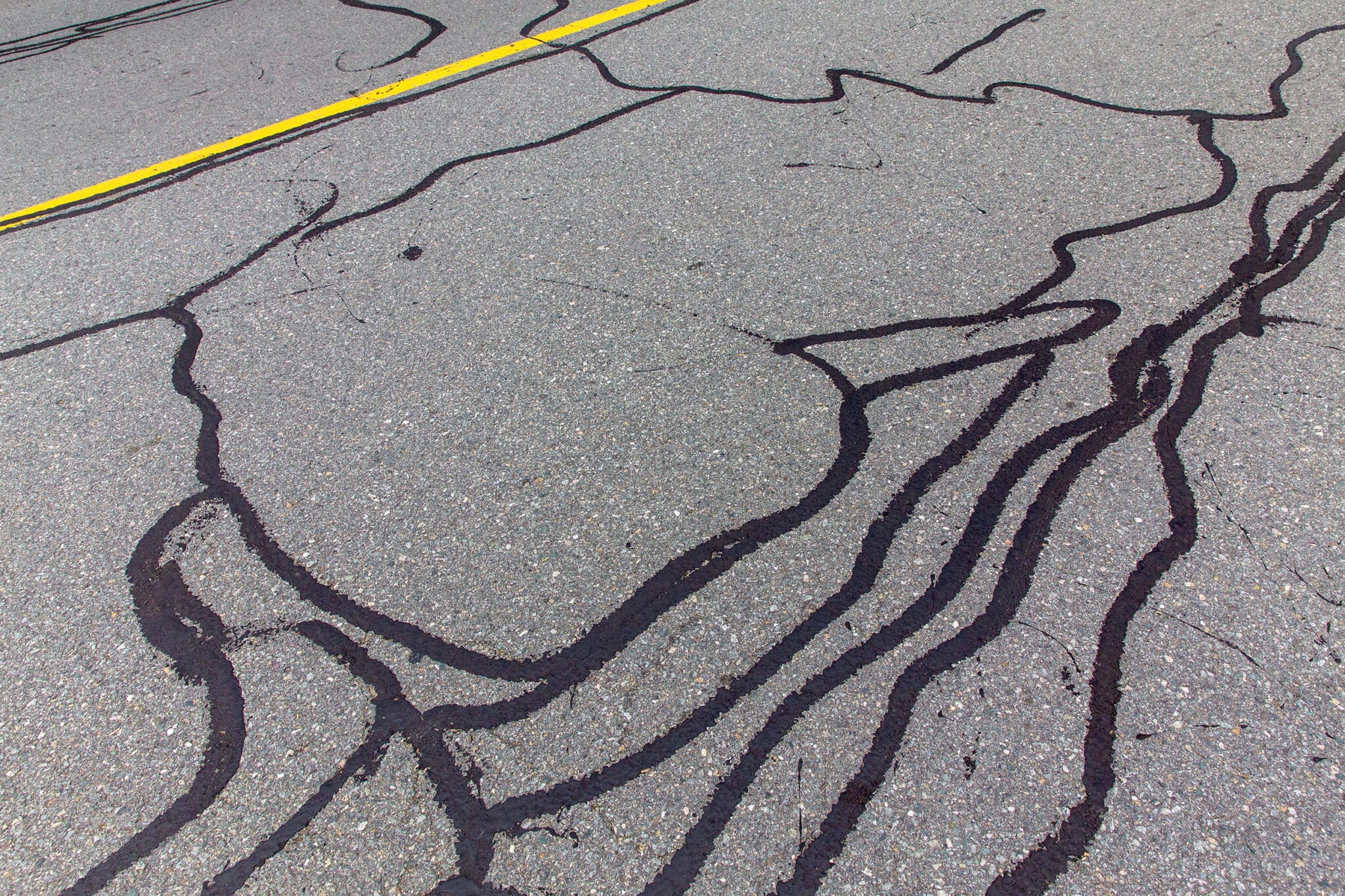Release the Possible: Regrading and Asphalt Sealing for Industrial Rooms
Release the Possible: Regrading and Asphalt Sealing for Industrial Rooms
Blog Article
Hot Mix Asphalt: A Sustainable Option for Pavement
Hot Mix Asphalt (HMA) has actually emerged as a leading sustainable selection for pavement options, providing a myriad of ecological benefits and innovative innovations. As the need for environmentally friendly building techniques grows, exploring the nuances of HMA's sustainability can offer useful understandings into the future of pavement options.
Environmental Advantages of Warm Mix Asphalt

Additionally, Hot Mix Asphalt helps to mitigate metropolitan warmth island results. Its dark shade soaks up sunlight, reducing the quantity of heat reflected back right into the ambience compared to lighter-colored sidewalks. This can decrease ambient temperatures in metropolitan locations, decreasing the demand for a/c and ultimately reducing power intake.
Additionally, Warm Mix Asphalt adds to boosted stormwater monitoring. Its permeable nature allows water to infiltrate the pavement and recharge groundwater products, decreasing runoff and the threat of flooding. These environmental advantages make Hot Mix Asphalt a lasting choice for leading roads and freeways.
Power Efficiency in HMA Manufacturing
Is power performance an important aspect in the manufacturing of Warm Mix Asphalt (HMA)? Absolutely. Energy plays a substantial duty in the manufacturing of HMA, affecting both cost and ecological sustainability. One crucial aspect of energy effectiveness in HMA production is making use of warm mix asphalt (WMA) technologies (commercial parking lot paving). WMA permits the mixing and placement of asphalt at lower temperatures compared to typical warm mix asphalt, resulting in lowered energy consumption throughout production. This procedure not just decreases gas usage yet also lowers greenhouse gas emissions, making it an extra environmentally pleasant choice.
Additionally, developments in plant technologies have led to more energy-efficient HMA manufacturing procedures. Modern plants are created with functions like recycled asphalt sidewalk (RAP) handling capabilities, effective heater systems, and boosted insulation, all adding to energy savings. By optimizing energy usage in HMA production, the sector can decrease its carbon footprint while preserving top quality sidewalk materials. Energy effectiveness is, for that reason, an important factor to consider in making certain the sustainability of Hot Mix Asphalt manufacturing.
Recyclability of Warm Mix Asphalt
The recyclability of Hot Mix Asphalt (HMA) is an essential facet of its sustainability and long-term ecological influence. HMA is one of the most recycled products in the USA, with over 100 million lots of redeemed asphalt pavement (RAP) being reused every year in brand-new pavement building. Recycling HMA uses several ecological benefits, such as minimizing the requirement for virgin products, reducing power intake throughout manufacturing, and lowering the amount of waste sent out to garbage dumps.
The procedure of recycling HMA involves grating the existing pavement, squashing it into smaller pieces, and blending it with new accumulation and asphalt binder to create a recycled mix. This recycled mix can frequently do as well as additional reading or also far better than traditional HMA, while calling for less raw materials and producing lower greenhouse gas exhausts. By including RAP right into new sidewalk projects, road agencies can preserve natural deposits, decrease prices, and decrease the ecological footprint of road building and upkeep activities. On the whole, the recyclability of HMA plays a considerable duty in advertising lasting techniques within the pavement market.

Long-Term Performance of HMA
Asphalt sidewalks demonstrate longevity and resilience over an extensive period, reflecting the long-lasting performance of Warm Mix Asphalt (HMA) Additionally, developments in HMA modern technology, such as the usage of polymer-modified binders and cozy mix asphalt, have better improved commercial parking lot paving the longevity and longevity of HMA pavements. By focusing on quality construction and maintenance methods, HMA continues to show itself as a lasting and economical option for long-lasting sidewalk framework.

HMA: Sturdiness and Sustainability
Showing both resilience and sustainability, Warm Mix Asphalt (HMA) has become a foundation in the building and construction of durable pavement frameworks - angled parking. HMA's durability stems from its ability to stand up to hefty lots, rough climate problems, and high web traffic volumes, making it a trusted selection for roads, freeways, and flight terminal paths. The make-up of HMA, which normally includes accumulations, binder, and filler, plays a crucial role in enhancing its longevity and resistance to use and tear
Moreover, HMA's sustainability hinges on its recyclability and energy-efficient manufacturing Bonuses process. The capacity to reuse recovered asphalt pavement (RAP) in brand-new HMA mixes reduces the demand for virgin materials and lessens the ecological impact of pavement construction and upkeep. Additionally, the energy performance of creating HMA depends on its lower blending temperatures compared to other sidewalk materials, resulting in lowered energy usage and greenhouse gas emissions.
Verdict
In conclusion, warm mix asphalt (HMA) provides a lasting service for sidewalk with its ecologically friendly features. HMA's recyclability, energy efficiency in manufacturing, and lasting resilience make it an environmentally friendly choice for roadway construction.
HMA is one of the most recycled materials in the United States, with over 100 million heaps of redeemed asphalt pavement (RAP) being recycled annually in new sidewalk building and construction.The process of recycling HMA includes grating the existing pavement, crushing it into smaller sized pieces, and mixing it with brand-new aggregate and asphalt binder to create a recycled mix.Asphalt pavements demonstrate toughness and strength over an extended duration, reflecting the long-lasting efficiency of Hot Mix Asphalt (HMA) In addition, developments in HMA technology, such as the usage of polymer-modified binders and cozy mix asphalt, have further boosted the sturdiness and longevity of HMA pavements. The ability to reuse redeemed asphalt sidewalk (RAP) in brand-new HMA mixes decreases the demand for virgin materials and decreases the environmental impact of sidewalk building and maintenance.
Report this page